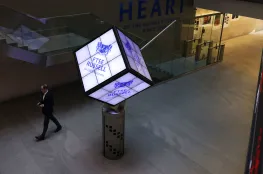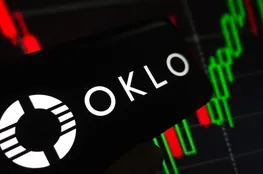Donald Trump launched the last full week of his presidential campaign with a high-energy rally at Madison Square Garden in New York City on Sunday. With a lineup featuring celebrity appearances and a fresh economic proposal, the event was designed to capture attention as the November election loomed closer. However, controversial remarks and offensive jokes from guest speakers often overshadowed the intended political discourse. Instead of unifying messages typical of late-stage campaign strategies, the rally was filled with divisive remarks, including racial slurs against Latinos and derogatory comments about women.
While this rhetoric stirred his existing base, it's doubtful it attracted new supporters outside of Trump's core followers. The rally's contentious tone began with Tony Hinchcliffe, a comedian known for his controversial style, who made remarks about Latino immigrants that strayed into offensive territory. He then made derogatory jokes about Puerto Rico and commented on Kansas City Chiefs player Travis Kelce inappropriately, referencing O.J. Simpson's infamous trial. Such comments underscore Trump's reliance on anti-immigrant sentiment, which has been a hallmark of his campaign, despite wide disagreement among scholars about his views on citizenship laws.
This rhetoric seems particularly risky as the Trump campaign seeks to improve its polling numbers among women and Latino voters, an effort that clashes with the tone of the rally. The gender gap in the 2024 election appears to be the largest on record. Meanwhile, the Harris campaign contrasts its approach by highlighting stories from women affected by strict abortion bans, a stark divergence from the Trump's narrative. The rally further intensified when Trump brought prominent backers like Hulk Hogan, Dr. Phil McGraw, and Lee Greenwood to the stage, while other speakers delivered a combative 'us vs. them' message against Democrats.
Radio host Sid Rosenberg disparaged Hillary Clinton and Democrats broadly as 'degenerates,' using inflammatory language, while financial figure Grant Cardone targeted Vice President Kamala Harris with demeaning accusations. Conservative commentator Tucker Carlson also joined the fray, mocking Harris' heritage and using phrases aligned with extremist theories to criticize the Democratic leadership. These divisive statements suggest an exclusionary definition of American identity that contrasts starkly with the inclusive message many Democrats promote. Despite the offensive rhetoric, the rally did feature some discussion on policy.
Trump criticized the Biden administration's handling of inflation and laid out a new proposal for tax credits aimed at those caring for family members at home, a counter to Harris' plan for expanded Medicare support. However, the rally's preoccupation remained on immigration and the perceived threats from 'radical left' opponents. Trump's rhetoric painted these groups as internal adversaries threatening national security and societal values, a recurring theme that resonates deeply with his support base. Yet, he attempted towards the end of his speech to frame the Republican Party as one of 'inclusion,' depicting the movement as diverse and welcoming.
This blend of aggression and ostensible unity highlights the complex dynamics at play as Trump maneuvers to energize his base while ostensibly pursuing broader appeal.
























